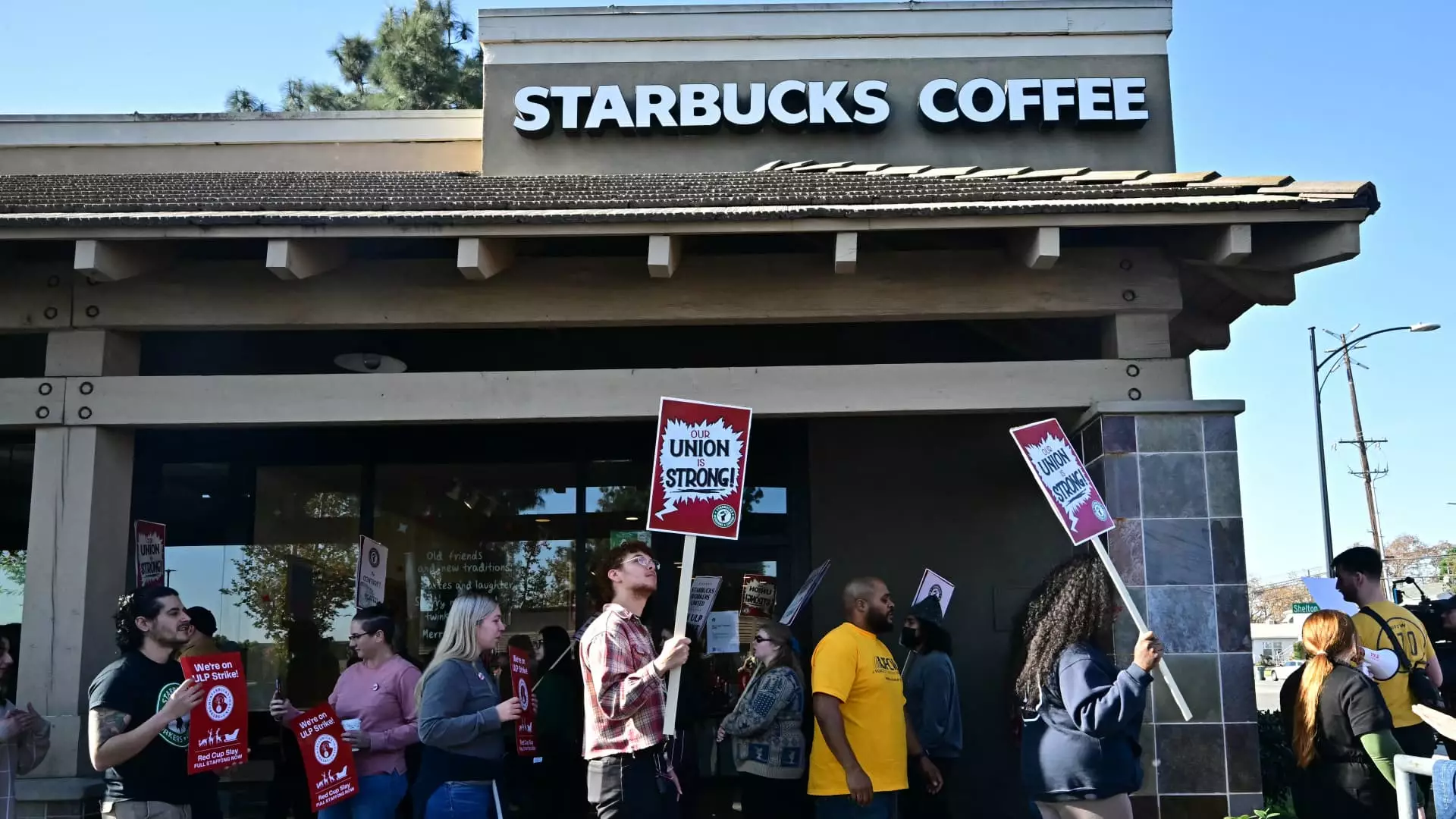In a significant demonstration of workforce solidarity, a strike involving Starbucks baristas is set to encompass around 5,000 workers across more than 300 stores in 45 states. This action coincides with Starbucks’ busiest holiday season, signaling a bold stance by employees who feel their needs are being overlooked. While this strike only accounts for approximately 3% of all U.S. Starbucks locations, it marks an important escalation from initial actions taken in three cities just a week prior. The organizing force behind this movement is a coalition of the Service Employees International Union and Starbucks Workers United, aiming to spotlight allegations of unfair labor practices and delays in contract negotiations that affect thousands of employees.
The strikers are advocating for a substantial wage increase, seeking to boost Starbucks’ minimum hourly wage by up to 64% immediately. Over the span of a three-year contract, they are demanding a total raise of 77%. Such a pay hike is indicative of broader wage-related frustrations that many workers face across various sectors. Lynne Fox, President of the Workers Union, articulated the sentiment among baristas by stating, “After all, Starbucks has said about how they value partners throughout the system, we refuse to accept zero immediate investment in baristas’ wages.” This statement underscores the growing demand for companies to genuinely honor their commitments to workforce welfare.
In response to the strikes, Starbucks executives have dismissed the union’s demands, labeling them as “not sustainable.” The company emphasizes the benefits package already available to employees, highlighting that those working a minimum of 20 hours a week can average around $30 hourly when pay and benefits are combined. Sara Kelly, Starbucks’ executive vice president, indicated that the union abandoned recent negotiations, suggesting that the company remains open for discussions when the union is willing to return to the bargaining table. This response, however, may seem disingenuous to workers who are advocating for immediate change.
Starbucks has experienced a notable shift in investor sentiment of late, particularly following the appointment of former Chipotle CEO Brian Niccol as the head of the coffee chain. Nevertheless, the company’s share price has faltered in recent weeks amidst broader market trends. Niccol’s tenure at Chipotle was not without labor strife; his previous experience involved disputes with worker rights and labor relations that culminated in settlements mandated by the National Labor Relations Board. As negotiations with the union loom, the stakes are high for both workers and company leadership, as public perception and labor relations increasingly intertwine.
As the Starbucks barista strike unfolds, it serves as a vital reminder of the ongoing struggles for labor rights and fair compensation in the workforce. The actions of these baristas illustrate not only their immediate grievances but also a larger movement towards re-evaluating how companies acknowledge and compensate their workforce. Whether Starbucks can navigate these tumultuous waters and address its employees’ demands appropriately will be pivotal in shaping its future trajectory as a leading retailer in the highly competitive food and beverage industry.


Leave a Reply